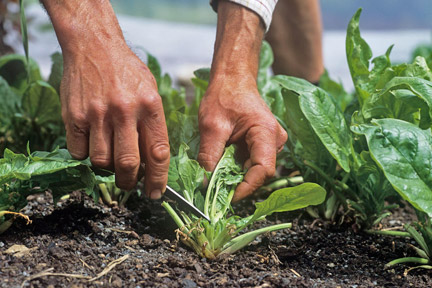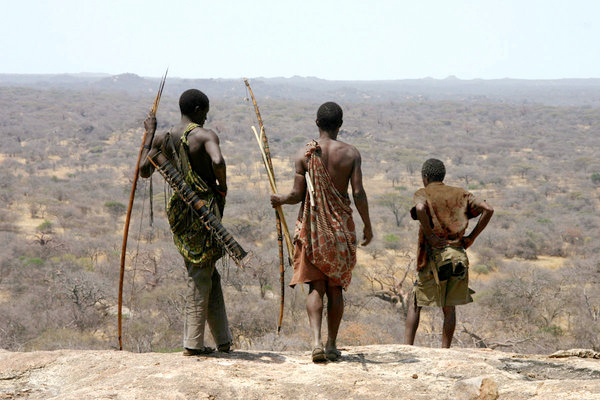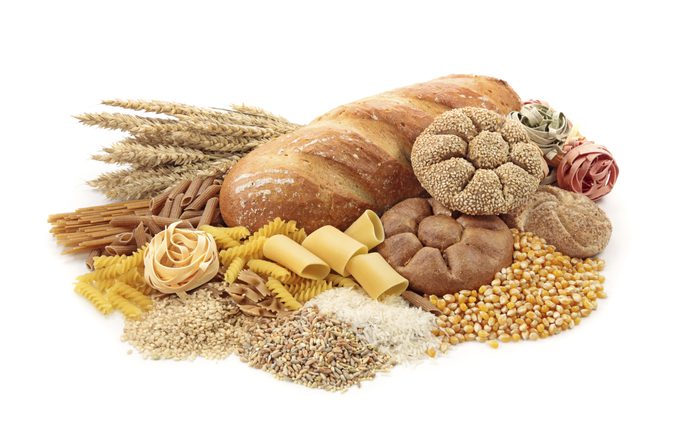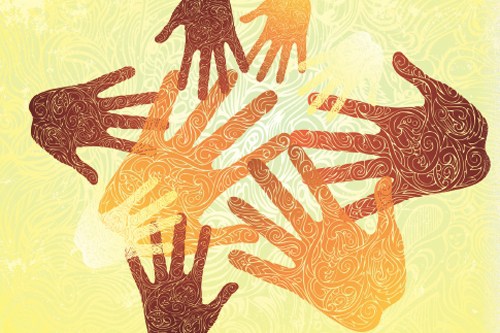Following on from the previous blog about returning to a state of rootedness, this week's blog will explore the roots of nutrition.
Possibly the sense of the word is too narrow, as it usually refers only to the narrow set of chemicals which traditional dieticians have focussed on: fats, carbs, protein, vitamins and possibly minerals. What I am thinking of is a broader set of chemicals (and remember, chemistry is the stuff of life, no need for an irrational fear of it just because certain – especially man made- chemicals have been misused in harmful ways): all of those beneficial chemicals which aid the thriving and flourishing of our bodies, which it is possible to obtain from eating and drinking. So in addition to the more traditional list of nutrients, this expanded list would include all sorts of bioactive compounds which stave off disease, which enhance overall function of the body or specific processes, organs or communication pathways, including those which support the diversity, extent and functionality of our gut flora.
In fact, nutrition, by which for the remainder of this article I mean the extended sense I have just outlined, is an end result of a set of linkages- roots- between a species and its environment. In other words, all we need is out there, but as to how it gets from out there to in here, in our bodies, to the place where it is needed- this depends on a kind of attunement and knowledge, as well as a set of relationships which enables foods to be recognised, gathered/ hunted, prepared, eaten, digested and metabolised. Of course I am talking about normal feeding behaviour here- normal in respect to the life on earth: how the vast majority of living things obtain sustenance, including how humans for the majority of our time on the planet, were sustained. The fact that buying take aways or going shopping and heating a ready meal is 90% of many modern human's sustenance obtaining activity, ought to seen for the aberration, the abnormality that it is.
My train of thought here is kind of both positive and negative. On the one hand we are biologically hard wired to accurately seek out and obtain the food we need food from our surroundings, just as every other species is. We are also hardwired to co create culture in our communities which supports and fine tunes this ability to know what to eat, to find it, prepare it and eat it. Anthropologists refer to this as biocultural knowledge. We could also call it food culture, or food traditions. Such knowledge is richeest in hunter gatherer societies where people interact with and eat many species of many classes of living things; it is also strong in subsistence farming communities, which often also hunt and gather a number of wild species; it is weakest in our modern culture of industrial farming, shopping and processed foods. Which brings me to the negative: the modern global food system undermines all the roots of nutrition referred to above.
It removes the need for people to be involved in where food comes from. It removes people from contact with the soil- something which is known to enhance gut flora and thus digestion and other aspects of our physiology.
 It removes people from contact with the living forms of food plants and animals: how many would recognise even a potato plant for example? Meat can easily be seen as a substance in its own right when it comes in plastic packets, a substance with almost no relation to the living creature it came from. (It needs to be said that the vegan community are doing a good job of enabling the rest of us to acknowledge this relation.)
It removes people from contact with the living forms of food plants and animals: how many would recognise even a potato plant for example? Meat can easily be seen as a substance in its own right when it comes in plastic packets, a substance with almost no relation to the living creature it came from. (It needs to be said that the vegan community are doing a good job of enabling the rest of us to acknowledge this relation.)
It removes people from the feedback mechanisms between available foods and our bodies in wild landscapes because supermarket buyers determine our range of choices and the bulk of biomass in these outlets is the product of a very small number of very few species of industrially farmed plants and animals.
It puts chemicals in our bodies which have either never before in our evolution been associated with food or else are being used in ways which scramble linkages, for example between flavour and the actual chemical make up of food- I am thinking here of the deceptive use of flavour chemicals such as artificial sweeteners and msg.
If we were just machines needing a few basic inputs- fuel essentially- this would not be a problem. Because food technologists and industrial agriculturalists have made the gross error and category mistake of assigning living systems as mechanisms, they have proceeded on just this basis. But we are not machines, our bodies are complex and also consist in a complex ecology and symbiosis between us and millions of other microscopic organisms within and on our bodies. This complexity is designed to extend outwards to an intricate and complex relation with the entirety of our surroundings- the land and seascapes in and around which we live.
This intricate and subtle web of connections makes up the ecology of our feeding behaviour. It is however, undermined at every step by the processes of industrial food. The focus for this piece however is on how many chemicals, which may be quite benign, essential even, in themselves, such as glucose and msg, act as anti nutrients in an industrial food context: they undermine the biologically based, robustly genetically encoded capacity to seek out prepare, eat, digest and metabolise foods which cause our bodies to thrive and to flourish.
So much recent media space has been taken up with research findings about food and diet, which is then brought down into specific dietary advice. For me the findings which are of most interest are those which elevate traditional diets, based on the strong correlation between the food culture on which they are based and measures of health such as longevity and the absence or low incidence of what have been described as the diseases of the west: cancer, heart disease and diabetes.

As time goes on, more and more of the aforementioned more fine tuned studies appear, exploring correlations between traditional diets and more diverse gut bacteria, or high levels of antioxidants, usually associated with eating lots of fruits, vegetables, herbs and spices; high intake of animal fats or unsaturated plant derived oils. Each of these provides another explanation as to why traditional diets are so beneficial to human health.
Personally, I do find it fascinating to learn of so many aspects of the life enhancing properties of simple food stuffs, and alongside that, the cumulative or over all outcome of so many of these effects working in combination when people eat many different kinds of good foods. The point being that the stuff of life is being shown to be- surprise surprise- life enhancing.
On the other hand, when the stuff of life- I have in mind carbohydrates here- is suddenly available in quantities and in a form which does not occur in wild ecosystems, its not too surprising that the effects are detrimental to health. Put simply, almost pure energy with no associated fibre or other stuff to make it digest in a slower, more complex fashion does not occur in readily available forms or quantities in the wild: no grains with swollen starch or sugar filled kernels, no processed sugars.
Similarly, umami flavours – msg, ribonucleotides- added to low protein foods scramble the relationship between savoury (umami) flavour and protein. Natural sources of umami are high in protein (meat, mushrooms, seaweed, cheese) so when we taste that savoury flavour our stomachs release the protein digesting enzyme protease. However, if we are eating potato crisps with artificial umami flavourings, we keep on eating and eating because our appetite for protein is never satisfied.
Regarding changes in dietary advice, and new research findings on food and health, I am aware that for many people, its not possible to see the wood for the trees. People seem to find it overwhelming to receive so many different pieces of dietary advice based on recent research findings and also there is a widespread feeling that new research contradicts what scientists were saying ten, twenty or thirty years ago.
I think the problem here is largely one of feeling the effects of one kind of knowledge being privileged over another. Since the enlightenment and the industrial revolution which followed it, scientific knowledge has been privileged against the know how of practical experience. Its funny that so much of the latter is dismissed as old wives tales for example, or seen as backwards, primitive and baseless. Traditional knowledge and practice, as I will attempt to show here, has a basis of deep roots, that go backwards out of sight towards the dawn of time. Scientists on the other hand often jump to conclusions which they have to retract before very long, but not before many people stumbled into a ditch, the blind following the blind in the form of modern high priests of scientific knowledge.... I probably should put some meat on the bones of this inflammatory statement.
What I have in mind as a particular example of dietary advice is the classic nutrition guidelines given since the nineteen seventies. The advice was to eat lots of carbohydrate and as little fat as possible. This was based on premature and quite wrong conclusions drawn from research, where fat was blamed for high levels of heart disease. In fact, it is the deficit in peoples diet- lack of fruit and vegetables for example- which is now known to be the problem. Saturated animal fats, especially butter, are now considered to be highly beneficial, whereas refined carbohydrate is now thought to be the main driver of obesity. So the advice has been turned on its head by subsequent findings. How ridiculous will the low fat high carb advice seem to future generations looking back?
 The point for me is that people with little or no regard for dietary advice, who are nicely embedded in a culture which has held onto its food traditions, will have continued to eat healthily whilst dedicated followers of scientific orthodoxy (funny how that moves so much given the imputed power of the truth claims it makes) were avoiding healthy fats and stuffing themselves with carbs. On the face of it, in a country like Britain which by the 1970's had lost much of its food traditions people have 3 choices: to eat without bothering to consider health implications to what we eat; to follow the advice that follows from the latest research or to base our diet on traditional cuisines of other nationalities which have not been eroded.
The point for me is that people with little or no regard for dietary advice, who are nicely embedded in a culture which has held onto its food traditions, will have continued to eat healthily whilst dedicated followers of scientific orthodoxy (funny how that moves so much given the imputed power of the truth claims it makes) were avoiding healthy fats and stuffing themselves with carbs. On the face of it, in a country like Britain which by the 1970's had lost much of its food traditions people have 3 choices: to eat without bothering to consider health implications to what we eat; to follow the advice that follows from the latest research or to base our diet on traditional cuisines of other nationalities which have not been eroded.
However, I think the real choice we have is much closer to home: it's in our bodies. The dna from which our anatomy and physiology, not to mention our psychology and behaviour unfolds, to some extent in partnership with our experience, is a record of millions of years of interactions- vital, immediate contact- between our ancestors and their environment, going right back to the first single celled organisms. What I want to say is that accurate selection of nutritious food stuffs in our surroundings is a basic biological capacity common to all living things, as basic as the ability to breathe, to move around or to reproduce.
Someone would have to neuter us to get rid of our sex instinct; cut our spinal chord to stop us moving around or gouge our eyes out to deprive us of our vision. So what has happened to our capacity so do what every other species of animal does effortlessly every day of the world: home in on and consume the right foods and combinations and qualities of foods to promote our well-being?
I have started to to answer my own question above. And in summary, it amounts to
- undermining the formation of the threads of connection which once enabled us to do this by eroding our connections with land, with soil, with microbes, with the living forms of other species.
- chemical disruption of what remains of the threads of connection, by use of chemicals not found in wild ecosystems- e.g. artificial sweeteners, trans fats, and the decontextualised use of other chemicals which are- carbs without fibre, flavour chemicals.
However, I will leave a more thorough exploration of this to the next blog, in which I will also look at how straightforward it is to begin to restore this, by reference to our biology, the feeding behaviour of other species and traditional cultures. Life is stronger than the mechanical tools of sabotage!

